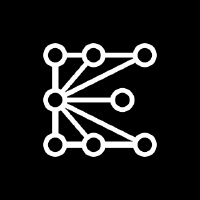K8sGPT
Giving Kubernetes superpowers to everyone through AI scanning and diagnosing.
AI Knowledge Assistant Internal Information Discovery Knowledge Management natural language processing Enterprise Search Multi-Platform SearchTool Information
| Primary Task | Kubernetes diagnostics |
|---|---|
| Category | technology-and-development |
| Sub Categories | devops-and-deployment cloud-infrastructure bug-tracking |
| Country | United Kingdom |
| Industry | information technology & services |
| Technologies | Amazon AWS, Bootstrap Framework, MailChimp, Varnish, Google Font API, Mobile Friendly, Remote, Node.js, Laravel, Automation Anywhere, Data Analytics, Scala, React Native, AI, Render, Reviews, Docker, Data Storage, Android |
| Website Status | 🟢 Active |
K8sGPT is an Artificial Intelligence (AI)-assisted tool designed to supercharge Site Reliability Engineering (SRE) tasks within Kubernetes environments. This tool uses AI and codified SRE knowledge to identify, triage, and diagnose potential issues within your Kubernetes clusters. It scans the clusters and simplifies complex signals into easy-to-understand reports, enhancing the overall health analysis and fast triage of workloads. K8sGPT offers integration with scanners like Trivy, allowing for efficient Security CVE reviews. The tool is compatible with all Cloud Native Computing Foundation (CNCF) conformant Kubernetes up to N-2 releases, ensuring compatibility with the latest versions of Kubernetes. K8sGPTs distinguishing feature is its incorporation of AI-driven analysis and SRE knowledge base to filter out irrelevant information and focus on essential data, helping users work smarter. Looking to the future, the development team aims to expand support for multiple AI-powered backends, which will act as guides amid the cluster noise. This tool is seen as a major time-saver for support teams, allowing them to concentrate on more complex problems and automation tasks.
k8sgpt.ai is an AI-driven platform focused on Kubernetes cluster management. It offers intelligent diagnostics and automated remediation tools designed to simplify Kubernetes operations for developers and Site Reliability Engineers (SREs). The platform codifies expert knowledge into AI-powered analyzers, enabling efficient troubleshooting and optimization of containerized environments.
Key services include AI-powered cluster analysis that detects issues and provides actionable insights, as well as auto-remediation that resolves common Kubernetes problems automatically. k8sgpt.ai supports multiple AI integrations, ensuring flexibility and data privacy, and features a security-first design that anonymizes sensitive data. The platform can be deployed as a Kubernetes operator for continuous monitoring and automated issue resolution.
Target customers include DevOps and SRE teams, enterprises needing scalable cluster management, and cloud-native developers looking for intuitive troubleshooting tools. k8sgpt.ai emphasizes vendor agnosticism, working across major cloud providers and on-premises deployments, and is built on an open-source foundation that encourages community collaboration.
| Pros |
|---|
|
| Cons |
|---|
|
Frequently Asked Questions
1. What is K8sGPT?
K8sGPT is an AI-assisted tool built to amplify Site Reliability Engineering (SRE) tasks within Kubernetes environments. It identifies, triages, and diagnoses potential issues in Kubernetes clusters. Barriers of complex signals are brought down to form easy-to-understand reports, thereby enhancing workload triage and overall health analysis.
2. How does K8sGPT utilize AI for Site Reliability Engineering tasks?
K8sGPT harnesses AI to analyze potential issues and triage tasks within Kubernetes clusters effectively. Leveraging AI and codified SRE knowledge, it can automatically identify issues and diagnose them. AI algorithms help filter out irrelevant information, honing the focus on essential data only.
3. How does K8sGPT scan and analyze Kubernetes clusters?
K8sGPT scans Kubernetes clusters by employing AI and codified SRE expertise. It scrutinizes common problems and current issues. The AI supports in navigating through the cluster noise by directing attention to crucial information, thus playing a guiding role in analysis.
4. In what way does K8sGPT simplify complex signals into reports?
K8sGPT transforms complex signals into simple, easily understandable reports by implementing its AI expertise. These analyzed data are then systematically arranged and presented in an accessible format that even individuals without in-depth technical knowledge can understand effectively.
5. What integration options does K8sGPT offer?
K8sGPT offers integration capabilities with scanners like Trivy. This facilitates an expanded reach and ability to connect to different platforms for comprehensive scrutiny and analysis, enhancing its efficiency.
6. How does K8sGPT help with Security CVE reviews?
With its integration feature with scanners like Trivy, K8sGPT helps efficiently perform Security CVE reviews. It swiftly detects and triages these issues, assisting in maintaining the security of Kubernetes clusters.
7. What does it mean that K8sGPT is compatible with all CNCF conformant Kubernetes up to N-2 releases?
Being compatible with all CNCF conformant Kubernetes up to N-2 releases means that K8sGPT can work smoothly with current and nearly recent versions of Kubernetes. This ensures that users won't face compatibility issues even if they are employing the most recent version of Kubernetes for their tasks.
8. What is the distinguishing feature of K8sGPT?
The distinguishing feature of K8sGPT is its fusion of AI-driven analysis and a codified SRE knowledge base. This distinct pairing aids in filtering out irrelevant information and allows for greater concentration on vital data, thereby enhancing user efficiency.
9. How does K8sGPT filter out irrelevant information?
K8sGPT employs its AI capabilities to sift through the cluster's noise and isolate the most relevant information. This is achieved by using AI algorithms in its analysis, which remove non-essential data leaving behind results that are relevant and valuable to the user.
10. How does K8sGPT help users work smarter?
K8sGPT leverages its AI-driven analysis and SRE knowledge to aid users in working smarter. It helps them avoid scouring through loads of irrelevant information by channeling their attention only to their essential and relevant data, thus enhancing productivity and data accuracy.
11. What are the future expansion plans for K8sGPT regarding AI-powered backends?
In future, K8sGPT plans to augment support for multiple AI-powered backends, which are set to act as guides amid the cluster noise. These AI-powered backends will enrich the user experience by providing refined and crucial data, freeing them from wading through irrelevant data.
12. How does K8sGPT help support teams save time?
K8sGPT saves time for support teams by quickly diagnosing and addressing common problems in the Kubernetes clusters. By eradicating the need to manually scrutinize and fix these issues, the teams can direct their attention to more complex problems and automation tasks.
13. What are the specific ways K8sGPT helps with diagnosing and triaging Kubernetes clusters?
K8sGPT supports the diagnosis and triage in Kubernetes clusters through its AI-capabilities that identify and diagnose potential issues. Its SRE knowledge aids in searching for common issues, thereby offering a practical solution for analyzing and diagnosing clusters.
14. How does K8sGPT improve workload health analysis?
K8sGPT improves workload health analysis by identifying critical issues with your workloads. It yields simple to comprehend suggestions and it uses AI to analyze the cluster in depth, aiding in quick and accurate health analysis.
15. What is the role of AI in K8sGPT's analysis?
AI plays an instrumental role in K8sGPT's analysis where it navigates the cluster noise and identifies relevant data. The AI is also pivotal in analyzing the cluster in depth, efficiently diagnosing issues and suggesting ways forward.
16. In what way does K8sGPT contribute to fast triage of workloads?
K8sGPT contributes to the fast triage of workloads by simplifying complex signals into comprehensible suggestions. It employs AI to analyze clusters in depth at a glance, enabling swift resolution and action on identified issues.
17. How does K8sGPT maintain compatibility with the latest versions of Kubernetes?
K8sGPT ensures compatibility with the latest versions of Kubernetes by periodically testing itself on all CNCF conformant Kubernetes clusters up to N-2 releases. This action guarantees that the software stays up-to-date and relevant with the evolving versions of Kubernetes.
18. What role does codified SRE knowledge play in K8sGPT?
Codified SRE knowledge forms the background of K8sGPT. Its analyzers search through the Kubernetes cluster for familiar problems based on this knowledge. This codified knowledge is continuously updated according to the latest Kubernetes releases to offer a real-time and adroit assessment.
19. How is AI incorporated into K8sGPT's work process?
AI is incorporated into K8sGPT's work process as the primary analyser. It helps by scanning Kubernetes clusters, diagnosing and triaging issues. Its AI-driven analyzers are based on SRE experience, helping to pull out the most relevant information, facilitating insights and action.
 AI Tool Buzz
AI Tool Buzz
 EternalAI
EternalAI Galaxy.ai
Galaxy.ai SRE.ai
SRE.ai Traceroot.ai
Traceroot.ai Cerebras
Cerebras